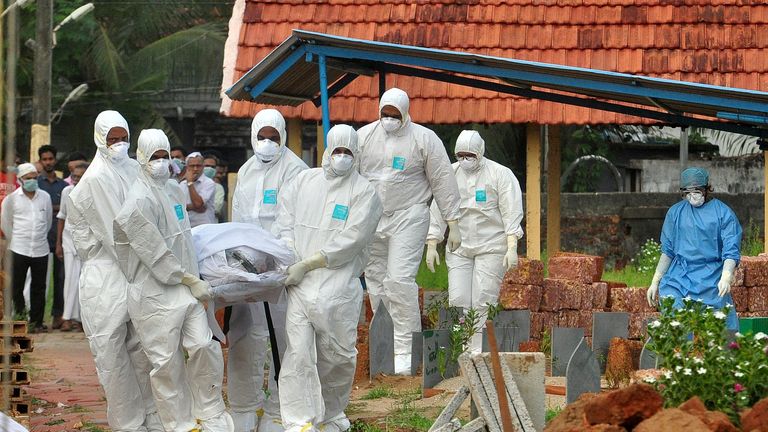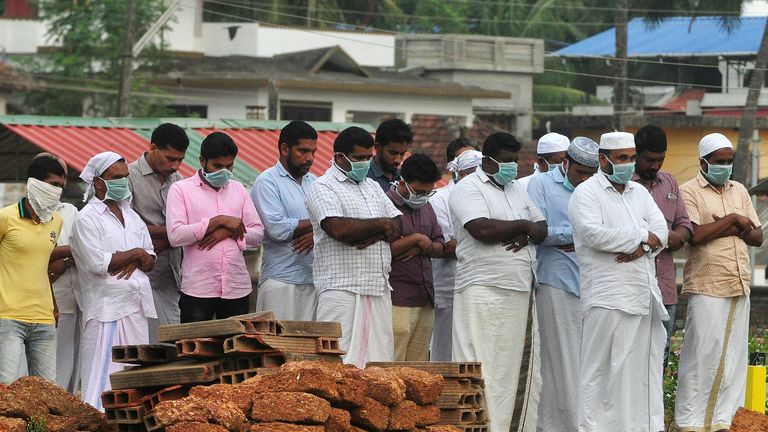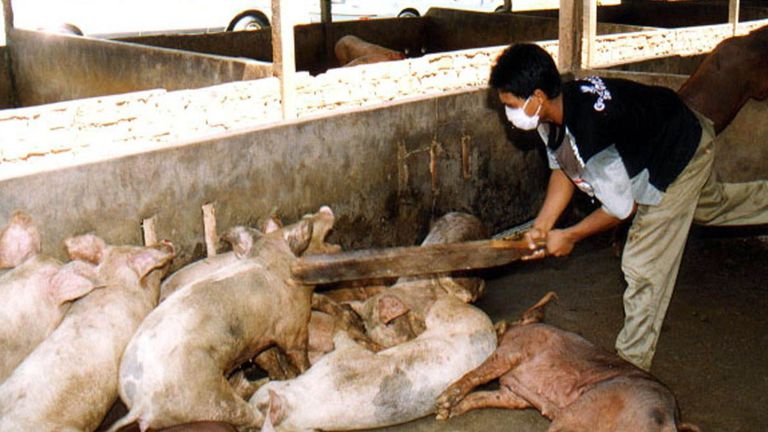More than a dozen killed by outbreak of rare nipah virus in India
The World Health Organisation says the nipah disease spreading through a state in southwest India could cause a global epidemic.
Monday 28 May 2018 16:52, UK
At least 13 people have died in India after an outbreak of a rare disease that health officials warn could cause a global epidemic.
Emergency measures have been imposed across the southwestern state of Kerala following the emergence of the nipah virus, which causes flu-like symptoms leading to an agonising brain-swelling condition known as encephalitis.
Those afflicted by the disease, which has a mortality rate of 70% and has no vaccine, can also be sent in to a coma.
Health experts have been flown over to help contain the virus, which is listed alongside ebola and zika as one of eight priority diseases the World Health Organisation believes could cause a global epidemic.
Nipah has killed 260 people in Malaysia, Bangladesh and India since 1998, and has previously spread to Singapore.
Pigs were the host on that occasion, but this time it has been spread by fruit bats, with a number of the winged animals found dead in a well at the home of a family which has lost four people to the disease.
A nurse in Kozhikode district, the epicentre of the outbreak, is also among the victims.
Local media reports that close to 200 patients in Kozhikode and Malappuram are receiving hospital treatment, with 26 under observation and three under intensive treatment.
During previous outbreaks in India, first in 2001 and then in 2007, more than 50 people have died.
On both occasions it was reported in the state of West Bengal, bordering Bangladesh, with the neighbouring country having borne the brunt of the disease in recent years.
The union health ministry has said the latest outbreak should remain localised, although the government has urged people to take precautions and issued advise on preventative measures.
People should not eat fruits that have fallen to the ground or appear to feature tooth or claw marks, and travel to the affected states should be avoided, the government has said.
But panic has already set in, with tests having been ordered after several bats were found dead at a secondary school in the state of Himachal Pradesh.
The examinations found the bats were not carrying nipah, but fear continues to run high across the country.





